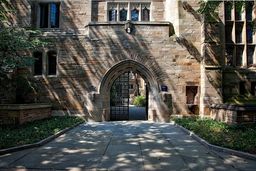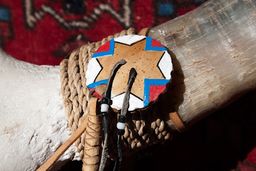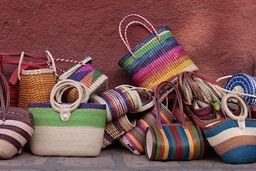Codes of Power

When we design curriculum to welcome the variability and diversity of all learners from all cultural and socio-economic backgrounds, we are “challenging the codes of power that exist in the classroom.”
These codes of power are the result of colonization. As discussed above, we all have a variety of intersecting social identities including race, Indigeneity, culture, class, gender identity and expression, sexual orientation, as well as ability. These are structured, in society and in our institutions, in ways that result in the oppression and marginalization of many groups. Constructing a system where some groups dominate over others is the cornerstone of colonization. Let’s take a closer look.
Colonialism is the historical practice of European expansion into territories already inhabited by Indigenous peoples for the purposes of taking land and resources. It was based on the notion of “terra nullius” (Latin for land of no one) and occurred during a period of time when the Doctrine of Discovery was in effect. This was an international law issued by Pope Nicholas V that gave license to explorers to claim “vacant land” in the name of their sovereign. Lands not occupied by Christians were considered to be vacant and therefore “discovered.”
Colonization, the process by which Europeans established control over the territories they “discovered,” involved the dehumanizing of Indigenous peoples and the violent suppression of Indigenous peoples’ governance (i.e., legal, social and cultural structures) and ways of knowing. Colonialism forced and continues to force Indigenous peoples to accept and integrate into the institutional and social structures of the colonial state. Education has been instrumental to colonization since industrial nations first started to educate their populations. For example, Canada’s industrial and residential school system was formed to keep Indigenous children “constantly within the circle of civilized conditions” (Davin, 1879).
Anti-Indigenous racism is one legacy of colonization. Indigenous peoples across Turtle Island continue to experience ongoing race-based discrimination, negative stereotyping, and injustice. Ideas and practices stemming from the legacy of colonial policies and practices in Canada establish, maintain, and perpetuate power imbalances, systemic barriers, and inequitable outcomes. These practices and their impacts can be seen in our education system.
What does it mean to decolonize our curriculum and teaching practices?
To decolonize our curriculum, and engage all learners, we need to challenge the legacy of systemic oppression through our teaching design and practice. (Later in the course we will explore the ways that critical pedagogy and critical digital pedagogy can support this process.)

Ontario’s postsecondary education institutions continue to identify significant gaps related to enrolment and retention of Aboriginal learners, as well as in the number of Aboriginal teaching and non-teaching staff within publicly assisted institutions.
Decolonization “is not a single event or prescribed blueprint but a complex and contested process of unlearning and undoing centuries of colonial ideas, desires, and infrastructures” (Stein, 2017). Our education system is a crucial site for transformative work to occur, working together with the Indigenous peoples of Turtle Island as well as other colonized, racialized, and marginalized peoples. We can all start somewhere when it comes to shedding our colonial mindset and ideas!

Colonialism remains an ongoing process, shaping both the structure and the quality of the relationship between settlers and Indigenous peoples.
(Visit this link for the TRC final report).
The term settler is used for the social identity of all non-Indigenous people because, whether past or present, people coming to Canada have settled on land that was taken from Indigenous peoples. Awareness of these social identities is important when reflecting on the biases that happen in curricula design and pedagogical practices.

Education is what got us into this mess and education is key to getting us out of it.
We will continue to return to this important work in each module, inviting and reflecting on lived experience and critically selecting course materials and options that promote discourse, discovery, and new learning that reflects anti-oppressive practice and UDL. You will also see “Decolonizing Curriculum” as a thematic code in the Learn More Resource Library, where there are many resources to explore.

We must believe that teachers and students can confront and defeat the forces that prevent students from living more fully and more freely. Every school is either a site of reproduction or a site of change. In other words, education can be liberating, or it can domesticate and maintain domination. It can sustain colonization in neo-colonial ways, or it can decolonize.